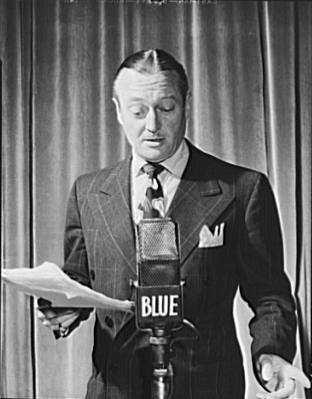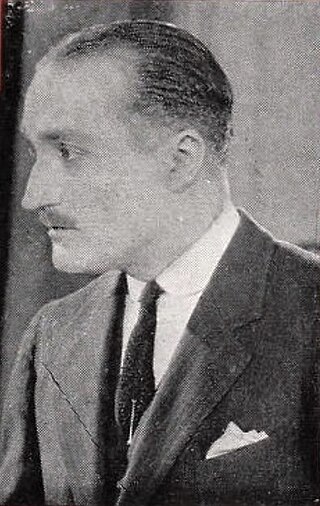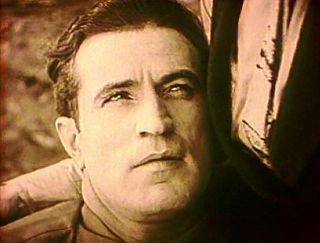
Rex Lloyd Lease was an American actor. He appeared in over 300 films, mainly in Poverty Row Westerns.

Frankie Darro was an American actor and later in his career a stuntman. He began his career as a child actor in silent films, progressed to lead roles and co-starring roles in adventure, western, dramatic, and comedy films, and later became a character actor and voice-over artist. He is perhaps best known for his role as Lampwick, the unlucky boy who turns into a donkey in Walt Disney's second animated feature, Pinocchio (1940). In early credits, his last name was spelled Darrow.

Tom Tyler was an American actor known for his leading roles in low-budget Western films in the silent and sound eras, and for his portrayal of superhero Captain Marvel in the 1941 serial film The Adventures of Captain Marvel. Tyler also played Kharis in 1940's The Mummy's Hand, a popular Universal Studios monster film.

Jack Perrin was an American actor specializing in Westerns.

Edmund Sherbourne Lowe was an American actor. His formative experience began in vaudeville and silent film.

William Nigh, born Emil Kreuske, was an American film director, writer, and actor. His film work sometimes lists him as either "Will Nigh" or "William Nye".

Albert S. Rogell was an American film director who was born in Oklahoma City and died in Los Angeles. Rogell directed more than a hundred movies between 1921 and 1958. He was known for an aggressive directing style, shouting at his actors and crew.

Howard "Duke" Worne was an American director and actor of the silent era. He directed more than 70 films between 1919 and 1931. He also appeared in 27 films between 1914 and 1928. He was born in Philadelphia, Pennsylvania and died in Los Angeles, California. In 1930, Worne married silent film actress Virginia Brown Faire, to whom he remained married until his death three years later in 1933.

Ernest Hilliard was an American actor. He appeared in more than 90 films between 1921 and 1947. He was born in New York City and died in Santa Monica, California, from a heart attack.

Tiffany Pictures, which also became Tiffany-Stahl Productions for a time, was a Hollywood motion picture studio in operation from 1921 until 1932. It is considered a Poverty Row studio, whose films had lower budgets, lesser-known stars, and overall lower production values than major studios.

Sono Art-World Wide Pictures was an American film distribution and production company in operation from 1927 to 1933. Their first feature film was The Rainbow Man (1929), while one of their most prominent was The Great Gabbo (1929) starring Erich von Stroheim and directed by James Cruze for James Cruze Productions, Inc. One of the last films distributed by the company was A Study in Scarlet (1933) starring Reginald Owen as Sherlock Holmes.

Hermon Reed Howes was an American model who later became an actor in silent and sound films.

Bob Custer was an American film actor who appeared in over 50 films, mostly Westerns, between 1924 and 1937, including The Fighting Hombre, Arizona Days, The Last Roundup, The Oklahoma Kid, Law of the Rio Grande, The Law of the Wild and Ambush Valley.
Tremlet C. Carr was an American film producer, closely associated with the low-budget filmmaking of Poverty Row. In 1931 he co-founded Monogram Pictures, which developed into one of the leading specialist producers of B pictures in Hollywood.

Chadwick Pictures was an American film production and distribution company active during the silent and early sound eras. It was originally established in New York by Isaac E. Chadwick in 1920 to release films, but from 1924 also began to produce them. In later years the company's independent films were similar to those of other small studios on Poverty Row. Following the introduction of sound, its releases were handled by Monogram Pictures. In 1933 it ceased production entirely.

W. Ray Johnston was an American film producer. He was associated with low-budget filmmaking, in particular with the larger Poverty Row studios Rayart Pictures and Monogram Pictures. Before founding Rayart in 1924, he also acted in a handful of films.
Samuel Zierler (1895–1964) was an American film producer of the silent and early sound era. As well as working for various studios, in the late 1920s he controlled his own production company, Excellent Pictures. His final film work was for RKO Pictures in 1933.

Aywon Film Corporation was an American film distribution company of the silent era. Founded in New York by Nathan Hirsh it was active between 1919 and 1929. The company mainly released western and action films but also handled several foreign imports such as The Blue Danube, The Hands of Orlac, The Prude's Fall and The Pleasure Garden.
Bert Longenecker (1876–1940) was an American cinematographer. He was active in Hollywood during the 1920s and 1930s, primarily on westerns at lower-budget Poverty Row companies including Aywon, Monogram and Republic Pictures. He frequently worked with the prolific director Robert N. Bradbury.
George W. Pyper (1886–1965) was an American screenwriter of the silent era. He was also a novelist. Pyper wrote the scripts for many productions made by FBO and Rayart Pictures, generally action films and westerns. He also worked on several serials for Universal Pictures.

















